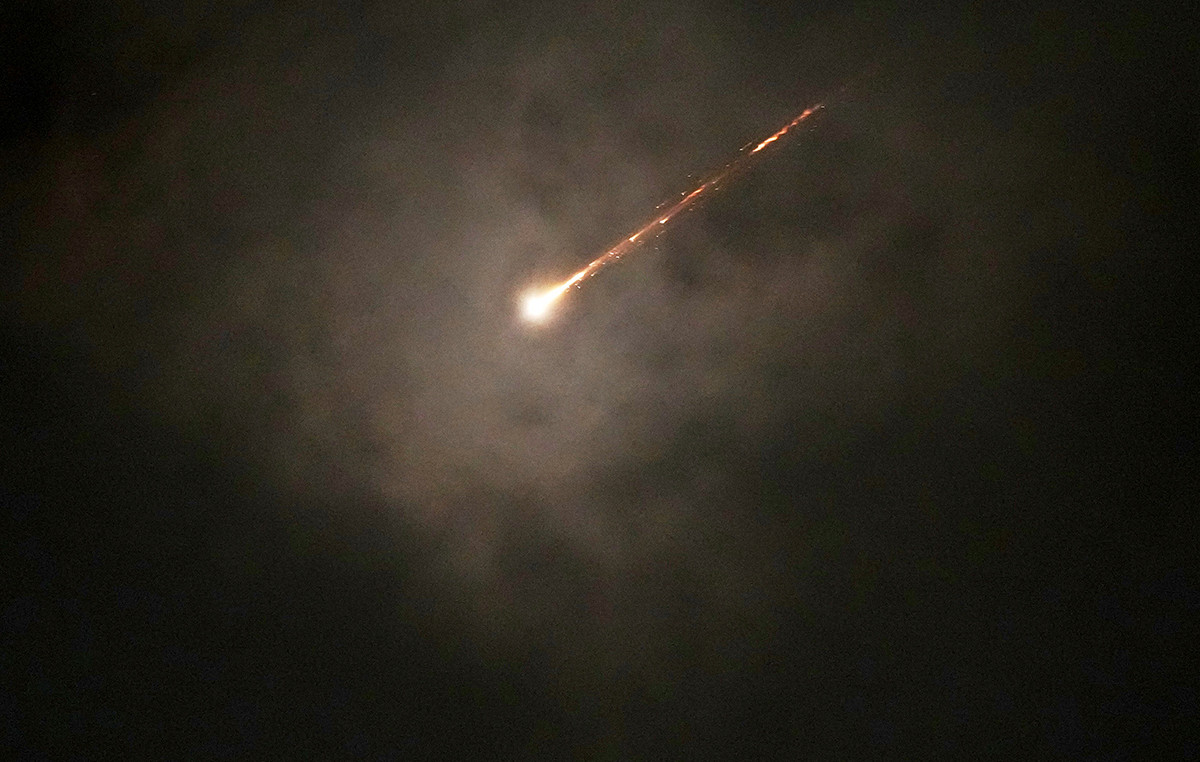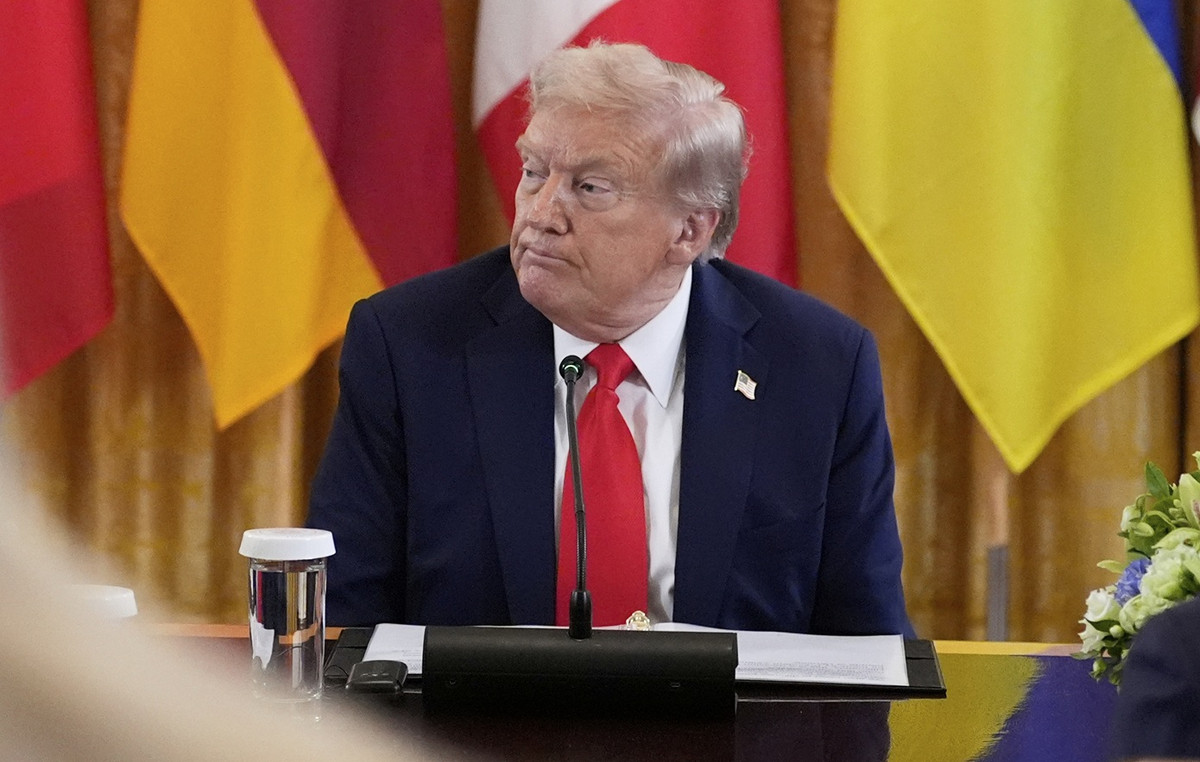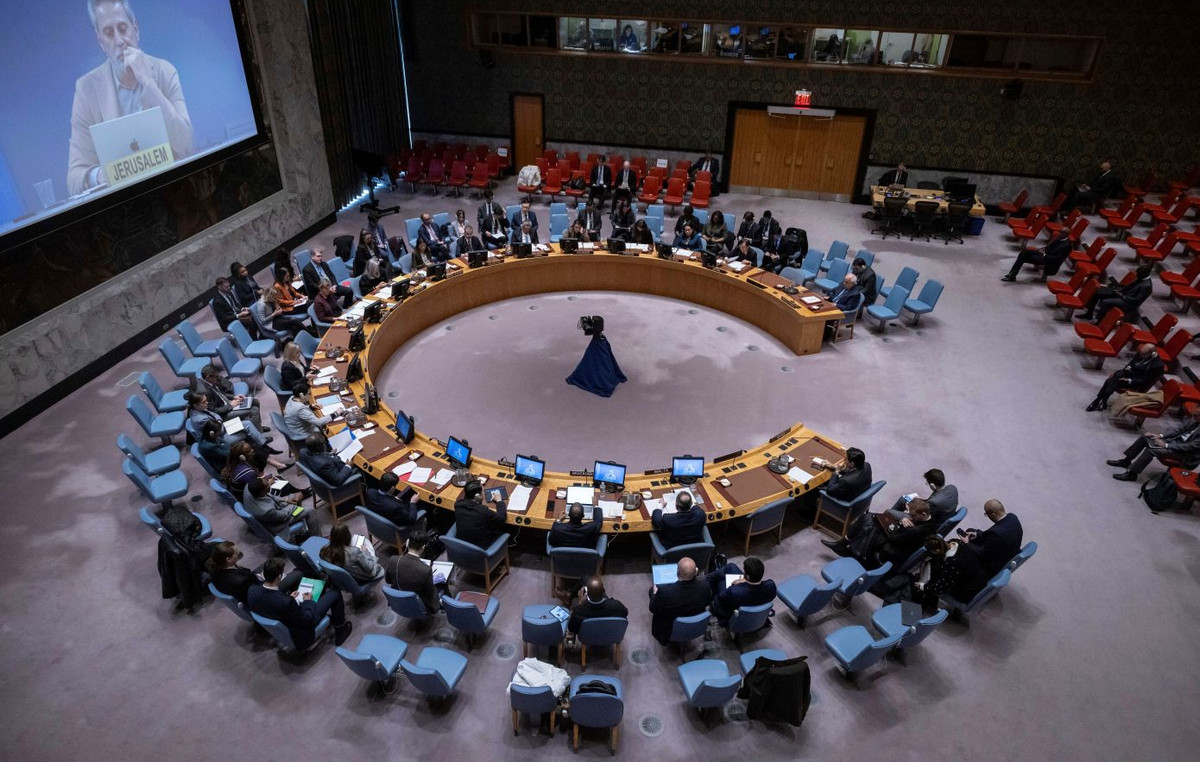Israel has vowed to continue its military operation in Gaza, saying it will not engage in “meaningless” negotiations with Hamas.
The statement comes shortly after the United Nations Security Council approved by a large majority a ceasefire plan, supported by the United States, aimed at putting an end to the conflict that has been going on for eight months.
Israel’s representative to the UN, Reut Shapir Ben-Naftaly, emphasized at a UN Security Council meeting on Monday (10) that the country wants to “ensure that Gaza does not pose a threat to Israel in the future”.
The diplomat said the war would not end until all hostages were returned and Hamas’ capabilities were “dismantled”, accusing the militant group of using “endless negotiations as a means of buying time”.
The comments were made after 14 of the 15 members of the UN Security Council voted in favor of the US-drafted resolution on Monday (10). The only abstention was from Russia.
This was the first time the council endorsed the plan to end the war.
Israel is not a member of the UN Security Council and therefore did not vote.
The three-phase peace agreement sets out conditions intended to lead to the eventual release of all remaining hostages, in exchange for a permanent ceasefire and the withdrawal of Israeli forces.
The proposal was first established by United States President Joe Biden on May 31.
The historic vote means the United Nations Security Council joins other major global organizations in supporting the plan, increasing international pressure on Hamas and Israel to end the conflict.
US Secretary of State Antony Blinken is on a diplomatic trip to the Middle East and met with Prime Minister Benjamin Netanyahu.
Blinken said this Tuesday (11) that the Israeli leader “reaffirmed his commitment” to the current proposal to guarantee a ceasefire and the release of hostages and that he is still awaiting a response from Hamas.
The US Secretary of State further stated that he received an explicit guarantee from Netanyahu that he continues to support the agreement and that he will accept it if Hamas agrees to “what is on the table”.
Netanyahu has repeatedly and publicly said that the country will continue the war in Gaza until Hamas is destroyed and the hostages are freed.
However, an Israeli statement this Tuesday (11) indicated that despite being about to formally sign the current ceasefire plan for Gaza, the country would at the same time maintain the freedom to continue fighting.
The brief communication issued was attributed solely to an Israeli government official but was understood to have broad meaning.
The Prime Minister’s Office affirmed Israel’s war aims before expressing support for the US-backed ceasefire proposal.
“Israel will not end the war before achieving all of its war goals: destroying Hamas’ military and government capabilities, releasing all hostages, and ensuring that Gaza does not pose a threat to Israel in the future,” he said.
“The proposal presented allows Israel to achieve these objectives and Israel will indeed do so,” the statement concluded.
Israel and Hamas react
Hamas welcomed the adoption of the UN Security Council resolution, saying in a statement that it was ready to collaborate to implement measures such as the withdrawal of Israeli forces from Gaza, the exchange of prisoners, the return of residents to their homes and the “rejection of any demographic change or reduction in the Gaza Strip area.”
The resolution says Israel has accepted the plan, and American officials have repeatedly emphasized that the Israeli government has agreed to the proposal — despite Netanyahu’s other public comments suggesting otherwise.
Last month, less than an hour after Biden unveiled his proposal, the Israeli prime minister insisted that Israel would not end the war until Hamas was defeated.
US Ambassador to the UN Linda Thomas-Greenfield said the US would ensure that Israel would meet its obligations, while Egypt and Qatar would do the same with Hamas.
“The fighting could stop today” if Hamas agreed to the deal, she said.
But detailed negotiations to implement its provisions have not yet produced agreement from either Israel or Hamas.
The proposal is divided into three phases, according to Thomas-Greenfield.
It includes an initial ceasefire, the release of Israeli hostages and the exchange of Palestinian prisoners, and, ultimately, the permanent end of hostilities with the full withdrawal of Israeli forces from Gaza, and an effective distribution of aid and major reconstruction in Gaza. range.
The ambassador also said that the agreement “rejects any geographic changes” in Gaza and reiterates the commitment to a two-state solution.
Palestinian UN envoy Riyad Mansour said the Palestinian Authority – which governs the Israeli-occupied West Bank – welcomed the deal as a “step in the right direction” but said it was up to Israel to implement the measures.
“We want a ceasefire,” he said, adding that “the burden is on the Israeli side to implement this resolution.”
“We will see who the interested parties are, we are eager to see this resolution become a reality and those who are obstructing it and want to continue the war of genocide against our people,” he added.
US pushes for Israeli support for deal
Before the vote, Blinken told Netanyahu during their meeting in Jerusalem that the proposal would “unlock the possibility of calm along Israel’s northern border and greater integration with countries in the region,” according to a State Department readout of the United States. USA.
“The United States and other world leaders will support” the proposal to release the hostages and an immediate ceasefire in Gaza, Blinken told Netanyahu.
After the resolution was adopted, Blinken spoke with Israeli Defense Minister Yoav Gallant and “praised Israel’s willingness to conclude a deal and stated that Hamas bears the responsibility for accepting it,” according to a readout of the meeting. .
Blinken arrived in Israel on Monday (10), following the resignation of Benny Gantz from the Israeli war cabinet on Sunday (9).
Gantz’s departure was a blow to Netanyahu, who is under increasing pressure from Western allies and hostage families to end the war and bring back the captives.
Gantz stressed to Blinken at the meeting the importance of “applying maximum pressure” on negotiators to secure Hamas’ agreement to the latest ceasefire plan and bring home those detained in Gaza, according to a statement from the office. by Gantz.
The Israeli politician said his party would support “any responsible agreement” on the issue coming from outside the government.
However, the issue has generated confusion about whose proposal it is.
Biden called it an “Israeli proposal,” but less than an hour after the American president announced the plan in May, Netanyahu said the country would not end the war until Hamas was defeated.
The US leader said that Hamas has been degraded to the point that it can no longer carry out this type of attack and that now “it is time for this war to end”.
The Israeli Prime Minister, however, has not yet publicly announced whether the country accepted or rejected the proposal drawn up by the US.
Eight months since the start of the war, Israel has still not achieved its stated objectives, as most of Hamas’ leadership remains at large.
Earlier this week, Israeli military officials estimated that around 120 hostages remain captive, of which around 70 are believed to still be in captivity alive.
More than 37,000 people have been killed in Gaza since the start of the war, according to the Gaza Ministry of Health.
A CNN cannot verify the figures provided by the ministry, which does not distinguish between combatant and civilian casualties. It does not include in its figures the several thousand people thought to be missing, or those still under the rubble in Gaza since October 7th.
Source: CNN Brasil
Bruce Belcher is a seasoned author with over 5 years of experience in world news. He writes for online news websites and provides in-depth analysis on the world stock market. Bruce is known for his insightful perspectives and commitment to keeping the public informed.







